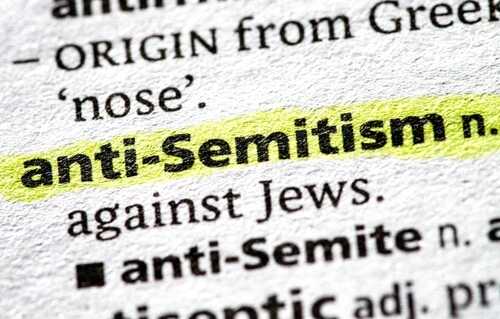(PCC)Anti-Semitism, or Jew hate, is one of the oldest forms of prejudice, spanning centuries and manifesting in various forms across cultures and societies. Unlike many forms of racism, anti-Semitism extends beyond racial biases, delving deeply into historical, religious, political, and ideological realms. Understanding its roots and persistence is essential to combating this insidious form of hatred.
- The Misunderstood Identity and Belief System
One of the unique aspects of anti-Semitism lies in the perception of Jewish identity, which intertwines religion and ethnicity. For many detractors, this dual identity fosters suspicion, leading to accusations of disloyalty toward the nations where Jews reside. Historically, this belief has fueled conspiracy theories, such as claims that Jews secretly control governments or financial systems.
For example, supremacists have often viewed Jewish success and resilience as evidence of a sinister agenda. Nazi Germany’s persecution of Jews from 1933 to 1945 epitomizes this phenomenon. Jews were falsely labeled as an existential threat, but many Jewish Germans were awarded medals for bravery by the German military for their actions during World War 1. The Jew hatred grew after the war, culminating in the systemic extermination of six million Jews during the Holocaust.
- Scapegoating During Societal Crises
Jews have historically served as scapegoats during periods of political or social unrest. This scapegoating is often tied to identity politics, where a visible minority is blamed for collective problems. Jewish communities, often perceived as successful and resourceful, have been envied and resented, with their achievements viewed as “privilege” rather than the result of hard work and resilience.
Jews frequently faced blame for societal woes during economic downturns or crises, such as the Black Plague in medieval Europe or modern financial disruptions. Their refusal to conform fully to dominant cultural norms or aggressive political agendas has further exacerbated animosity.
- Stereotypes and resilience.
Persistent stereotypes about Jews—such as being controllers of money, media, or political power—stem from historical survival strategies. Excluded from many professions due to discriminatory laws, Jews historically excelled in trade, finance, and scholarship, fostering a perception of economic domination.
Despite these stereotypes being repeatedly debunked, they continue to fuel anti-Semitic conspiracy theories. Ironically, people often twist the qualities that have enabled Jewish survival—intelligence, tenacity, and adaptability—into evidence of alleged manipulation or malice.
- Jealousy and Misplaced Notions of Inferiority
The perception of Jews as “God’s chosen people” has fostered jealousy and resentment. This belief, rooted in theological traditions, can create a false sense of inferiority among those outside this lineage, leading to hatred. For example, the misguided notion that non-Jews are “second class” has fueled animosity, despite religious teachings affirming that all people can achieve righteousness by seeking God and obeying His commands.
- The establishment of Israel and modern geopolitics
The establishment of Israel in 1948 added a new dimension to anti-Semitism. The creation of a Jewish state on land previously inhabited by Muslim communities sparked deep animosity, particularly in the Muslim world. This geopolitical conflict has extended anti-Semitic sentiment to Jewish communities worldwide.
Criticism of Israel often conflates legitimate political disagreements with anti-Semitic rhetoric, targeting Jews collectively for the actions of the Israeli government. This blend of political and ethnic animosity perpetuates cycles of blame and hatred.
- Religious Roots: The “Christ Killers” Myth
One of the most damaging religious accusations against Jews is the claim that they were responsible for the crucifixion of Jesus Christ. Throughout history, people have twisted this narrative to portray Jews collectively as “Christ killers.”
A closer examination of the biblical narrative reveals a complex picture. Political corruption and mob influence marked the trial of Jesus. Pontius Pilate, the Roman governor, found no guilt in Jesus but yielded to public pressure to avoid unrest. Through the Democratic Vote, the voters—composed of individuals from various backgrounds—called for Jesus’ execution. The notion that Jews as a whole bear eternal responsibility for this event is a misrepresentation and a tool of hate.
- Historical Example: The Trial of Jesus
The trial and crucifixion of Jesus Christ exemplify historical Jew hatred. Although Jewish leaders accused Jesus of blasphemy, the Roman authorities ultimately carried out his execution. Pontius Pilate publicly declared Jesus innocent, yet he succumbed to public demands to crucify him. Throughout history, people have misused the crowd’s declaration, “Let the responsibility for his death fall on us and on our children,” to justify anti-Semitism.
This event sent a dangerous message to Jewish communities: “You could be next.” People often interpret the spiritual rebellion against G*d as a direct attack on His chosen people, thereby perpetuating cycles of hatred.
Final Word: Let’s not forget that it was through a democratic vote issued by a corrupt federal government that the voters demanded capital punishment for a man whom both the governor and his territorial chief declared innocent. Jesus was unjustly whipped, beaten, raped, tortured, and falsely accused (without evidence) by a corrupt federal government, and then through a twisted democratic process, the voters demanded the rule of law be set aside, the innocent Jesus be tortured to death, while the convicted murderer on death row receives a full pardon.
Do you believe that this is a relic from the past and that it wouldn’t occur today? Then how do you explain this verified Israel Report below?
https://patriotcommandcenter.org/forum/jew-hatred-growing-why


